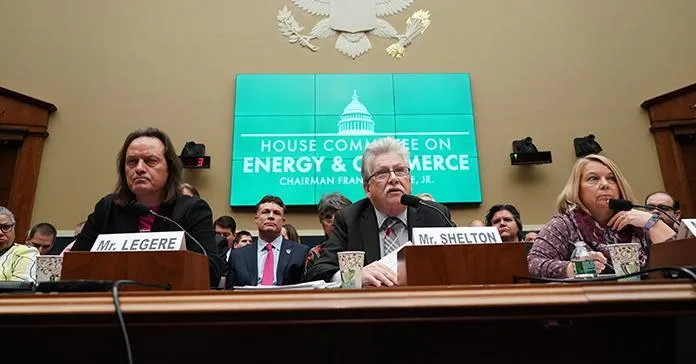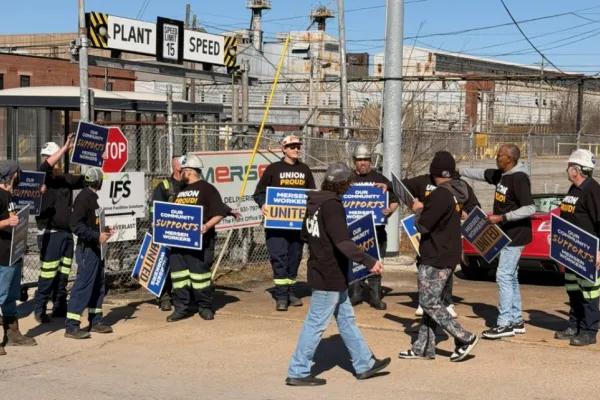House Hearing Reveals Weakness of T-Mobile and Sprint's Merger Claims

CWA President Chris Shelton testified in front of Congress on Wednesday at a U.S. House Energy and Commerce Subcommittee on Communications and Technology hearing on the T-Mobile/Sprint merger. At the hearing, Shelton warned that the proposed T-Mobile/Sprint merger will harm thousands of workers and consumers.
"Thirty thousand fewer jobs," said Shelton. "Lower wages by as much as $3,000 per year. Disproportionate harm to low-income communities. Higher prices for all consumers. All to help a state-owned German company and a Japanese billionaire make more money. Members of the Committee, that is not in the public interest."
At the hearing, witnesses who raised concerns about the proposed merger offered detailed and extensive documentation and analysis, while merger supporters relied on vague and unsubstantiated claims.
"Without binding and enforceable commitments – and I mean commitments that have no loopholes – such promises are just cheap sales talk and are easily broken," Shelton said. "Trusting Sprint and T-Mobile with American jobs is like trusting a vampire at a blood bank. These are two of the worst companies in the United States when it comes to labor law and the treatment of workers. In recent years, T-Mobile has been charged with more labor law violations per worker than even Walmart."
Shelton highlighted T-Mobile's track record of buying companies and then cutting jobs, noting the aftermath and harm of T-Mobile's 2018 acquisition of Iowa Wireless (the subject of a CWA report, Disrupting Rural Wireless, released this week). As Shelton noted, "After it acquired Iowa Wireless in 2018, it closed all iWireless call centers and more than 90 percent of its retail locations. It closed every single store in rural Iowa."
Members of Congress also expressed skepticism about the companies' claims during the hearing, pressing T-Mobile CEO John Legere and Sprint Executive Chairman Marcelo Claure on jobs, consumer prices, rural buildout, and their commitment to the federal Lifeline program that helps low-income consumers access critical telecommunications services.
Meanwhile, CWA's concerns about potential job loss in the merger have drawn attention at the state level. Earlier this week, CWA expressed disappointment at the New York Public Service Commission's decision to approve the T-Mobile/Sprint merger, but noted that the union's concerns were taken into account by the PSC's requirement that the number of workers directly employed by the companies be preserved at the same level for at least three years after the merger.

At a U.S. House Energy and Commerce Subcommittee on Communications and Technology hearing, CWA President Chris Shelton told Congress that the proposed T-Mobile/Sprint merger will harm thousands of workers and consumers.
Graphic Audio First Contract Negotiations: 02/24/2026
Get Involved: CWA Black History Month Town Hall


